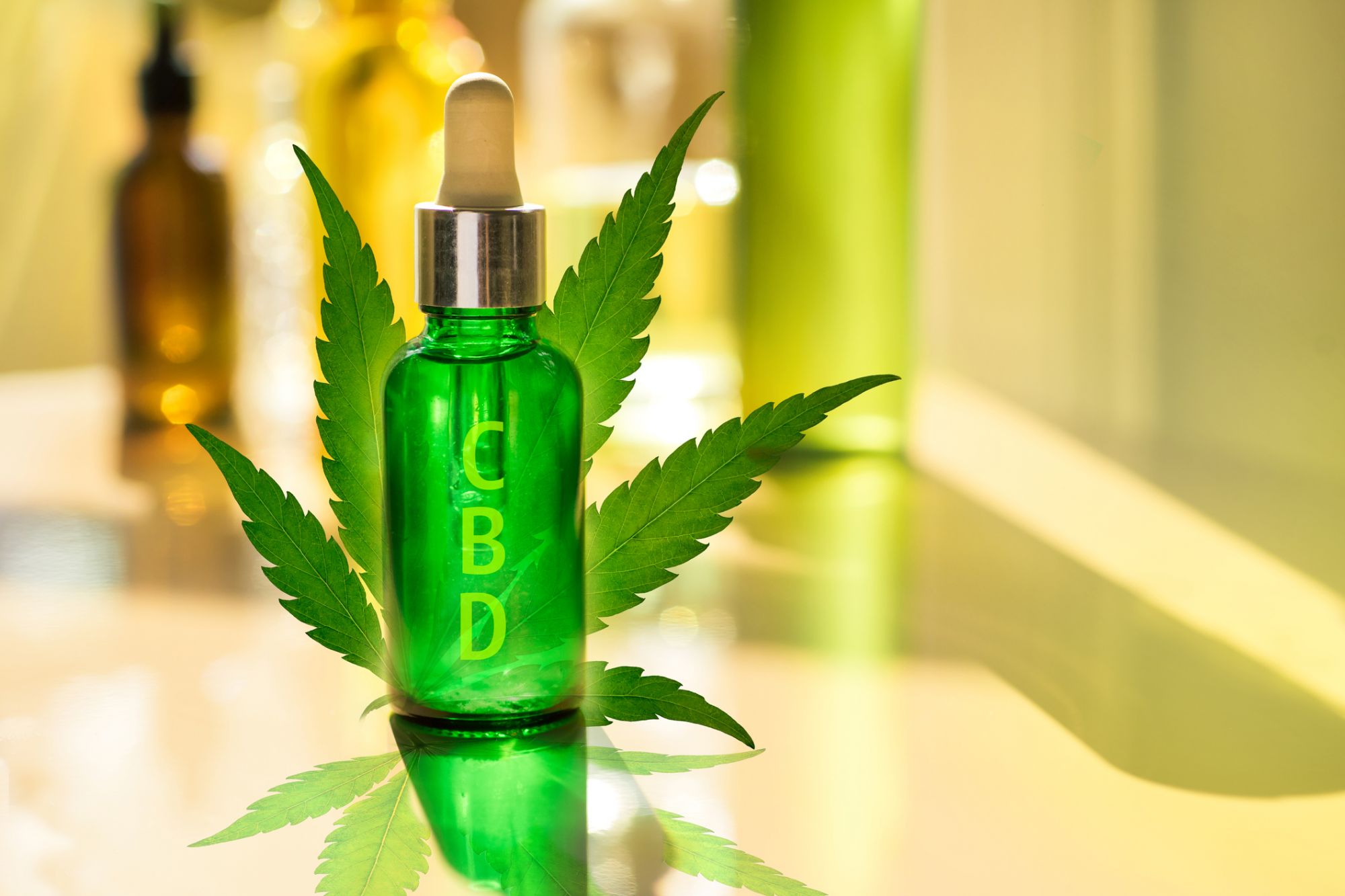Cannabidiol, commonly abbreviated as CBD, is a compound in cannabis marketed for its immense therapeutic benefits. CBD is primarily touted for its analgesic and anxiolytic properties. The compound has proven effective in managing the symptoms of common chronic ailments, such as arthritis, cancer, endometriosis, social anxiety disorder (SAD), and post-traumatic stress disorder (PTSD).
Medical marijuana doctors also recommend cannabidiol to treat inflammatory diseases, such as cancer, acne, and inflammatory bowel disease (IBD). Seizures, nausea, and insomnia are other common issues that CBD may treat or help manage.
With such a long list of pharmacological benefits, it’s not surprising that cannabidiol is increasingly finding its way into various health and wellness products.
Another reason medical experts recommend CBD is that the compound is non-psychoactive. In other words, CBD won’t get you high. Marijuana’s intoxicating properties are attributed mainly to tetrahydrocannabinol (THC).
Now, depression is one of the numerous medical ailments that cannabidiol is generally prescribed. But does CBD contain antidepressant properties? Read on for more insights into that.
Photo Credit: Pixabay.com
More About Depression
We’ve just pointed out that cannabidiol might help to treat or manage depression. Of course, that depends on the quality of CBD products you go for.
To make the most of the compound, insist on the best CBD edibles or other cannabidiol-based products like CBD oral tinctures, CBD oil, CBD vape juice, or CBD ointments. Whichever product you go for should preferably be formulated with hemp-derived CBD obtained via the Carbon Dioxide (CO2) Extraction method. CBD extracted this way is usually purer and more potent than that obtained by other common extraction methods.
But perhaps before we delve deeper into the role of CBD in managing depression, we should begin by understanding what depression is, as well as its causes and symptoms.
Now, depression is a mood disorder characterized by persistent feelings of sadness, despondency, and a loss of enthusiasm or pleasure in daily activities. Depression is often confused with mood fluctuations. But the two conditions are different from each other. Mood fluctuations are more common and easier to manage than depression.
According to the World Health Organization (WHO), depression is the primary cause of disability worldwide. What makes depression worse is that it’s an ongoing problem as opposed to a passing one. It occurs in episodes, during which the symptoms may persist for weeks or even years if not properly managed. And the condition is indiscriminate. It affects people of all ages, gender, and social status.
Photo Credit: Pixabay.com
Causes of Depression
Depression can result from significant life events, including losing a job, the death of a loved one, or divorce. Other common causes of depression include;
- Changes in the brain’s signaling of certain neurotransmitters, such as serotonin and dopamine
- Genetic predisposition
- Environmental factors like oppressive work conditions
- Social factors like abusive marriages
- Certain underlying medical conditions, particularly psychiatric issues like bipolar disorder
Symptoms of Depression
Depression manifests in a range of symptoms, including;
- A depressed mood
- Feelings of guilt or worthlessness
- Suicidal behaviors
- Loss of enthusiasm or pleasure in activities that one typically enjoys, such as having sex, going out, and working out
- Irritability
- Fatigue
- Appetite changes
- Unintentional weight gain or loss
- Oversleeping or not sleeping enough
- Reduced attention span
- Difficulty thinking
- Making poor decisions
- Diminished speech and movement
Photo Credit: Pixabay.com
Treatment for Depression and the Role of CBD
Depression is commonly treated using drugs known as antidepressants. Antidepressants are generally classified depending on how they combat depression.
Common categories include;
- Selective serotonin reuptake inhibitors (SSRIs)
- Selective serotonin and norepinephrine reuptake inhibitors (SNRIs)
- monoamine oxidase inhibitors (MAOIs)
- atypical antidepressants
- tricyclic antidepressants
But while conventional antidepressants are somewhat effective at relieving some of the symptoms of depression, these drugs are also infamous for inducing several adverse effects. And that’s where cannabidiol comes in.
CBD mainly relieves depression by increasing the brain’s sensitivity to the neurotransmitter serotonin. The compound pretty much mimics the behavior of selective serotonin reuptake inhibitors but without inducing the side effects associated with SSRIs.
Note that serotonin deficiency has been observed among people with depression. So, boosting the brain’s sensitivity to this neurotransmitter can go a long way in helping to manage depression.
What Does Research Say?
Numerous studies investigating cannabidiol’s antidepressant properties have yielded positive findings. In a 2014 study, researchers noted that cannabidiol interacted with serotonin receptors in the brain that produced both anti-anxiety and antidepressant effects.
Although this study was conducted on animal specimens, it’s easy to extrapolate the findings into the human population. That’s because the endocannabinoid system – an endocrine regulatory system that plays a significant role in transmitting serotonin signals between the brain and the rest of the body – is nearly-similar across different mammals. Besides, a 2018 review of existing studies inferred that CBD contains powerful anxiolytic properties that may also help reduce stress and depression.
But stress and anxiety aren’t the only depression side effects that cannabidiol may treat.
CBD boasts sedating properties, which could help combat insomnia. The compound has also demonstrated potential for fighting nausea. Therefore, it might help with appetite loss, which is another core symptom of depression.
Photo Credit: Pixabay.com
Wrap Up
Cannabidiol is worth trying for people with depression. CBD can help address some of the condition’s most worrying symptoms, including stress, anxiety, nausea, and insomnia.
However, remember that research on the antidepressant properties of cannabidiol is still ongoing. So, always discuss with your doctor before using CBD for depression or any other purpose.


















